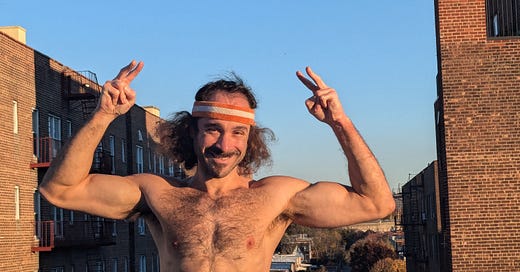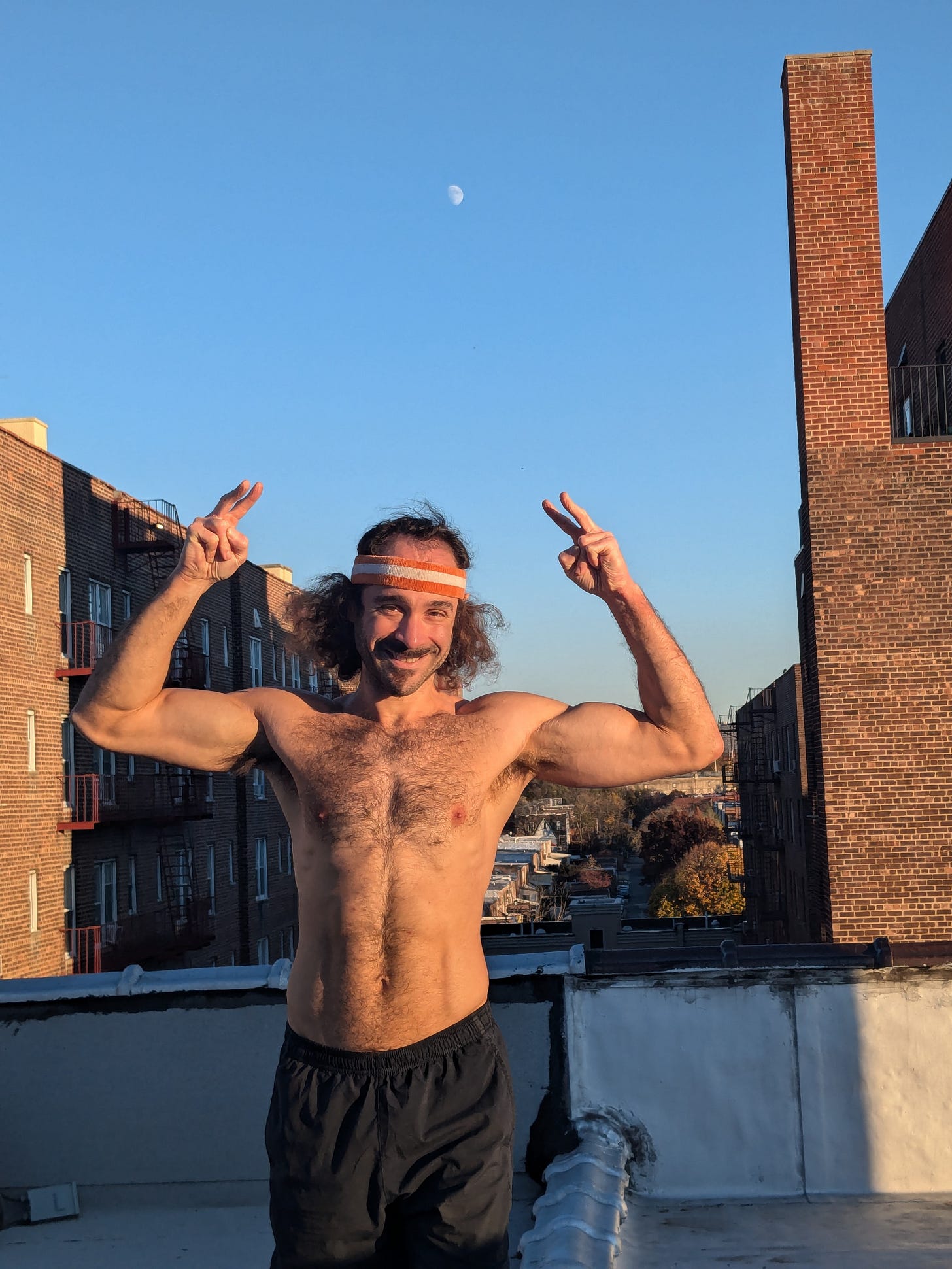Hey y’all! I’m back from my hiatus, which was somewhat self-imposed, as a means to focus on my time with family and friends in San Antonio. I hope in the interim you’ve all been well and had a fruitful end to 2024.
Taking a break from writing means that I have lots to say upon my return. And so you, dear readers, will get to hear the myriad of thoughts, concerns and topics that I’ve been eager to express via the written word.
While I slowed down with my own posting, I’ve been keen on reading other’s posts and notes. One of my goals for early 2025 is to complete my personal training certification. Therefore, I’m soaking fitness information up like a sponge. And there’s so much of it to consume and to consider. But unfortunately not all of it is productive.
I’m not shocked, but definitely continually disappointed to see rampant examples of ableism from personal trainers and influencers in the fitness industry. Not a day goes by where I see fitness related posts on social media, which includes Substack posts and notes (basically the Substack equivalent to Twitter), that contain bias towards people due to their body type, physical ability and behaviors. It’s not only mean-spirited, but shows a general lack of critical thinking and knowledge of the human condition.
Working out and the healthy lifestyle that accompanies a fitness-forward mindset, is often discussed as a utopian ideal. For example, we’ll hear that in order to “be healthy” we need to do things like, perform X amount of reps/steps/sets per day/week; sleep X amount of hours a night, eat X amount of calories/protein; lose X amount of weight; avoid X types of foods. That’s fine advice and motivation to a certain extent, but too many folks espousing “good health, diet and sleep habits” are actually coming from a place of privilege.
Good sleep hygiene, exercise and a well balanced diet of wholesome foods have significant health benefits. But what works for you may not work or be tangible for others. I’ve been seeing a trend of fitness trainers and influencers alike not understanding how to apply a spectrum of nuance, which accounts for an individual's mental and physical needs. I don’t always assume that they’re exhibiting blatant bias, but nonetheless, making value judgments about a person’s lifestyle without getting to the crux of their background and experiences is ableism.
In many instances, disabled persons can and should exercise. But how they do it might be in contrast to what’s espoused in the mainstream. A person’s disability isn’t always visible, especially when it comes to chronic conditions. Prescribing exercise without nuance can be shattering to their psyche and detrimental to their physical well-being.
As someone with a mental illness, I have a disability. My OCD hinders my ability to perform routine tasks and socialize in ways that neurotypical folks can. Although I’ve disciplined myself to a healthy and active lifestyle; I understand the difficulty that mental health has on an individual’s motivation and capacity to adhere to such habits. My blood boils when I see people shaming others without considering and understanding how mental health and other chronic conditions impact the ability to do certain things.
Influencers often make statements regarding how we all should train, eat and recover. There’s golden nuggets of advice in these declarations. At the same time, they are presented largely as assumptions rather than coming from a place of experience. A twenty-something neurotypical dude has a far different perspective on life than myself, a forty year old, who has knowingly lived and been affected by OCD since the age of six.
I’m happy to see so many people thriving due to their self-motivated fitness journey. But just because you’re thriving within your routine doesn’t mean that you should be shoving it down others throats, making them feel less than as a human for not achieving the same benchmarks. Calling people lazy and fat and stigmatizing mental illness because they don't adhere to your definition of a "healthy lifestyle," doesn't make you a fitness guru, it makes you an asshole.
As I work towards gaining more experience as a fitness coach, I intend to utilize my lived experience to make my methods accessible to a wide range of individuals. I want them to enjoy the process and be proud of themselves. We’re all works in progress, so let’s please be kind to ourselves and others.
Thanks for reading Artfully Exercising!
Show me some ❤️
I’d be grateful if you’d take a moment to hit the “heart icon” on this post to show your appreciation (and boost this post within the algorithmic sea that is social media).
Consider subscribing 📩
Artfully Exercising is a reader-supported publication about art and fitness. To receive new posts and support my work, consider becoming a free or paid subscriber:
Documenting my physical and mental health journey in the form of Artfully Exercising has been a labor of love, which takes a lot of (well spent) time, energy and resources to write the content you receive in your email boxes. If my writing has given you any sort of inspiration and enrichment, please consider making a contribution by becoming a paid subscriber or making a one time contribution.
If you are not ready to become a paid subscriber, you can support my work with a one pledge at a monetary value of your choice:
Let’s continue the conversation 💬
If what I’ve written resonates with you, and/or you want to share your thoughts, please leave me a comment! One of the most rewarding things about writing is getting feedback and making connections with others!





Really enjoyed reading this Adam! Excited to see what you do in 2025. Thank you for always striving to support accessible spaces and engaging in radical conversation.
Im excited by your plan of making fitness accessible and customized. This could really help those people who struggle to find a way to make it work for them.
You’re spot on in how cookie cutter plans don’t work for everyone. I’m a good example of that. I have repetitive stress injuries to my shoulders from doing physical labour jobs (welding and pipe fitting) and most of the time it doesn’t bother me. But if I do too many days in a row of any exercise that hits those muscles (like pushups) I end up suffering hard from a lot of pain and soreness and have to back off for up to two weeks as well as a massage therapist or physical therapist to heal back up. So in my case, a 75 Hard or Hard 90 challenge is a crippler. So many workout plans are too much, too fast, too over the top for my body. I need slow and steady and extra rest days. I’m not alone in this.
Can’t wait to see where you go with your plan!